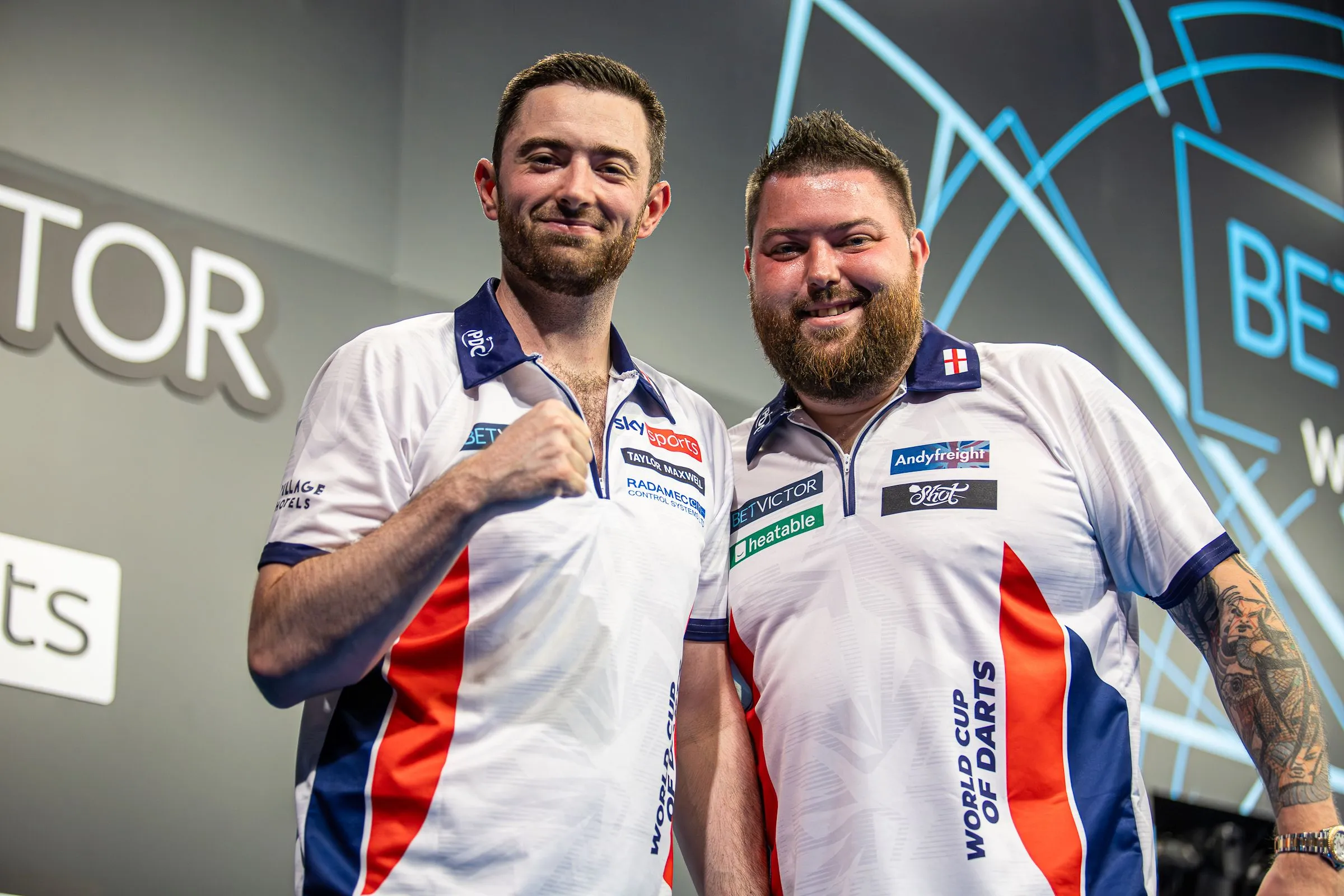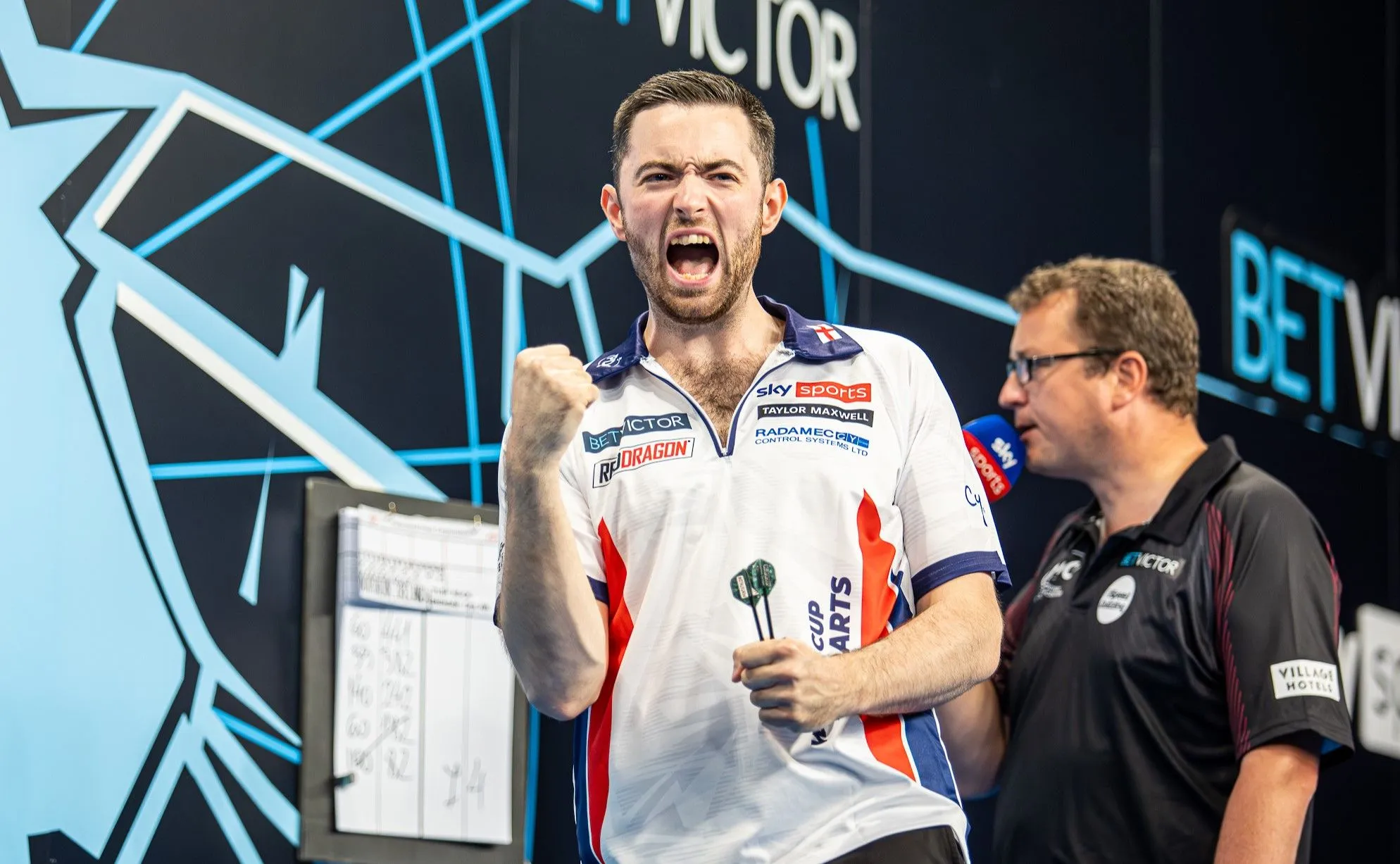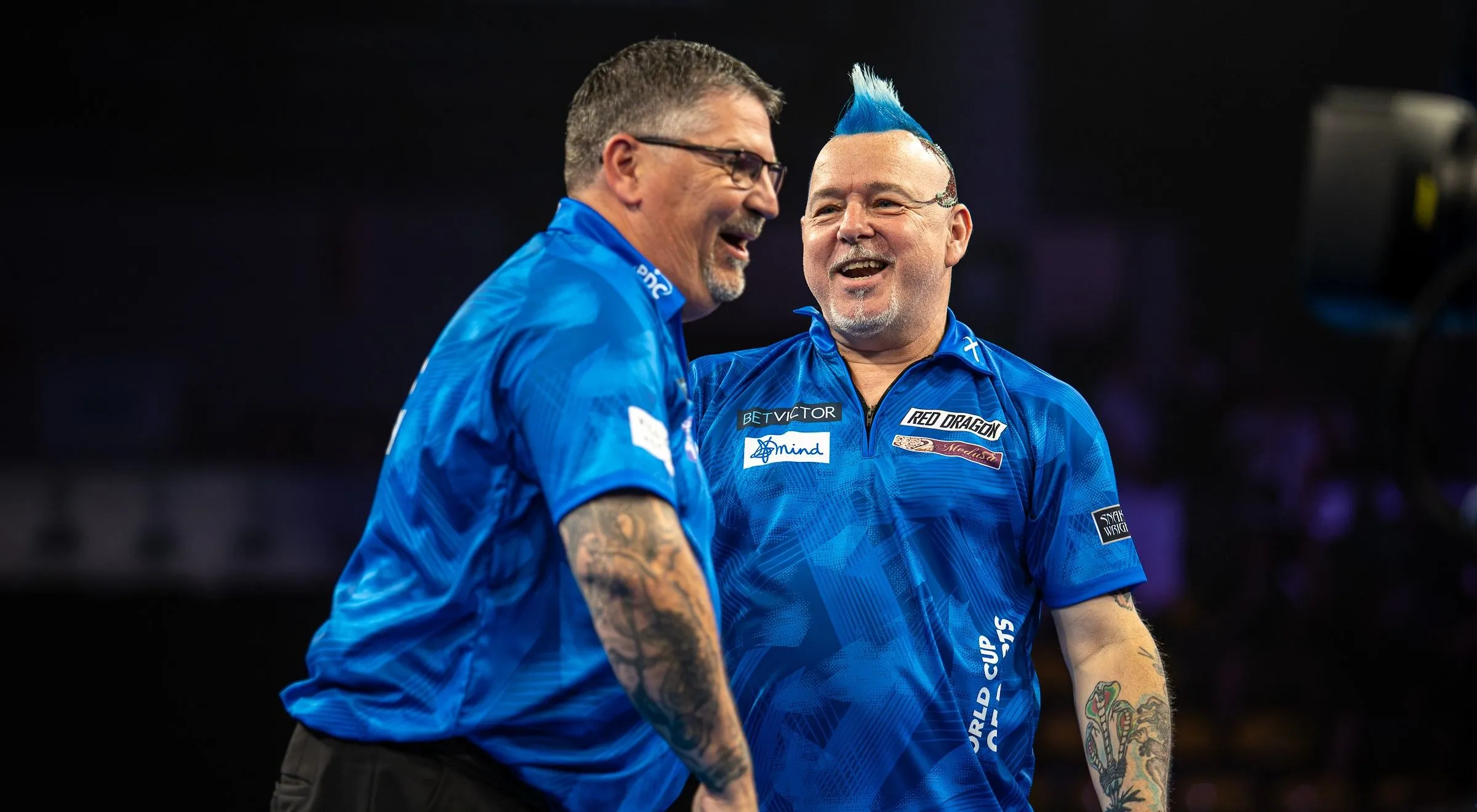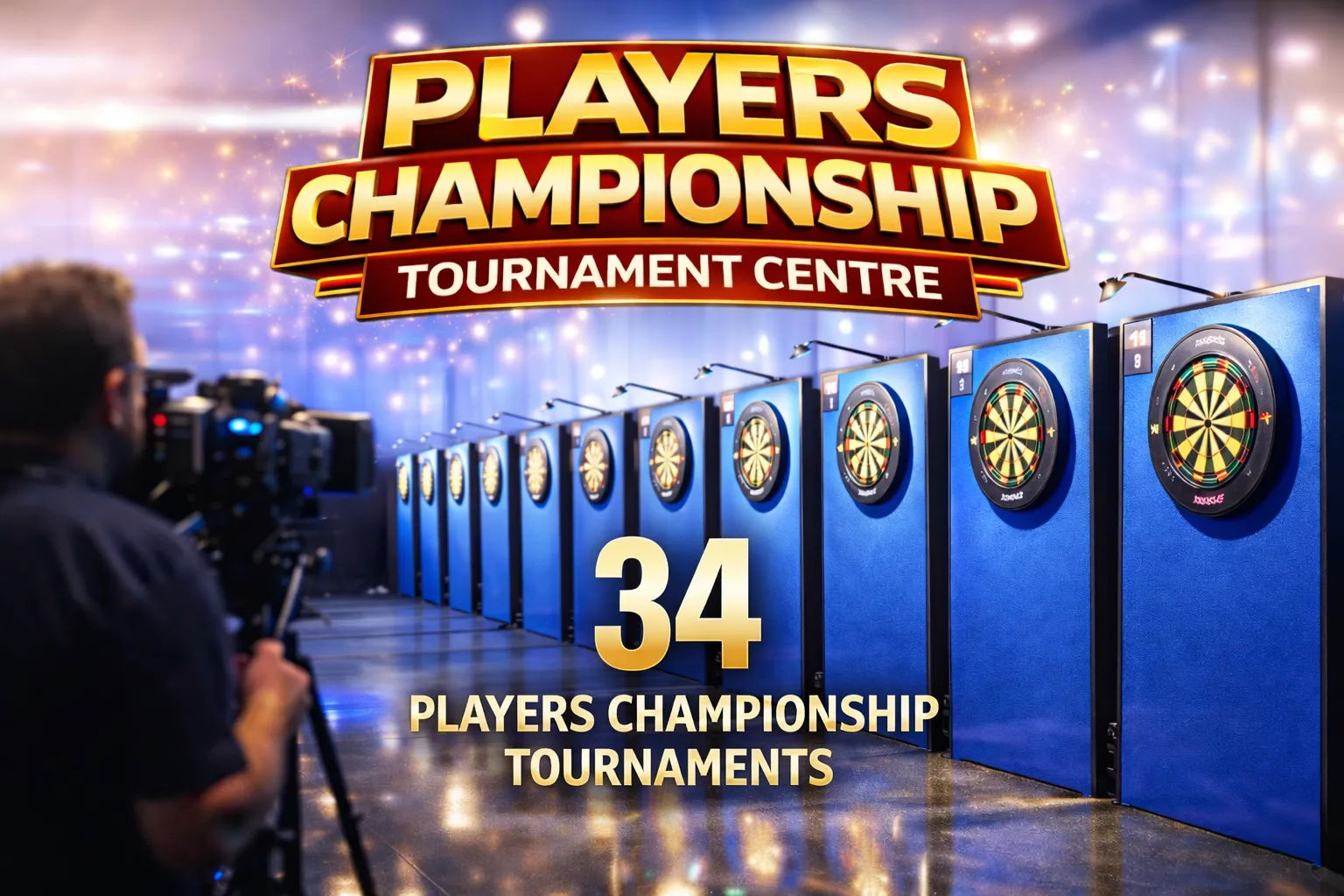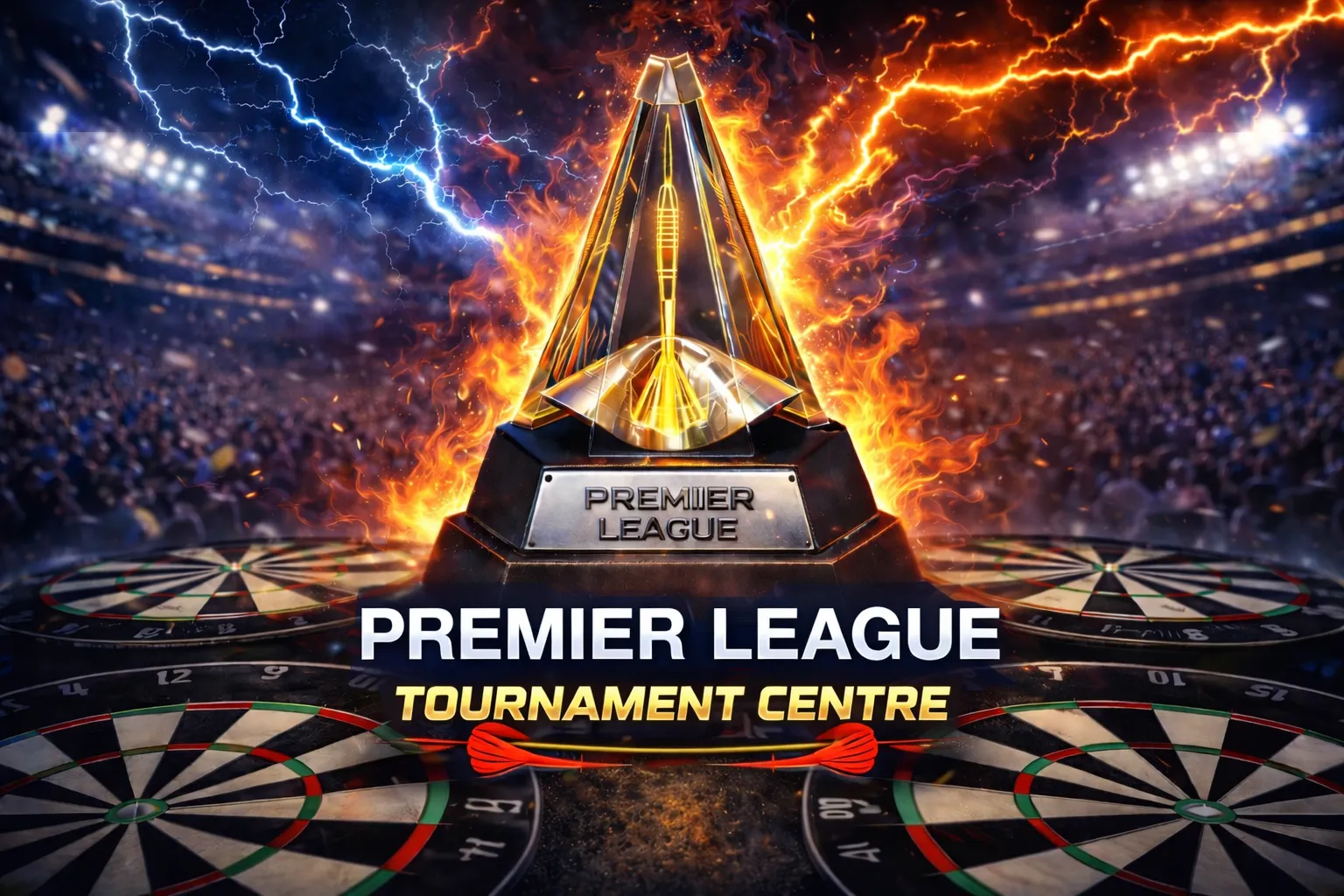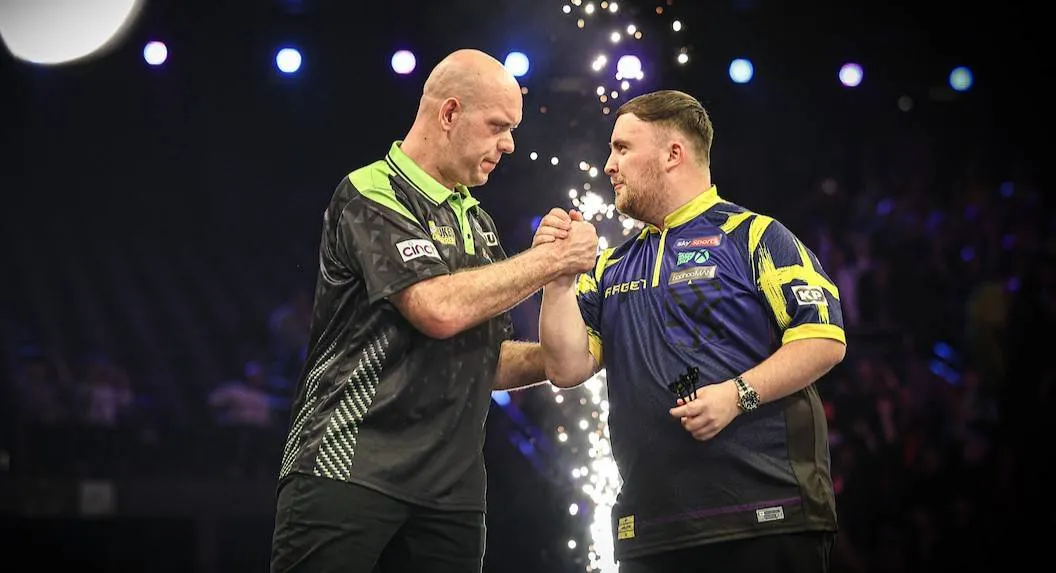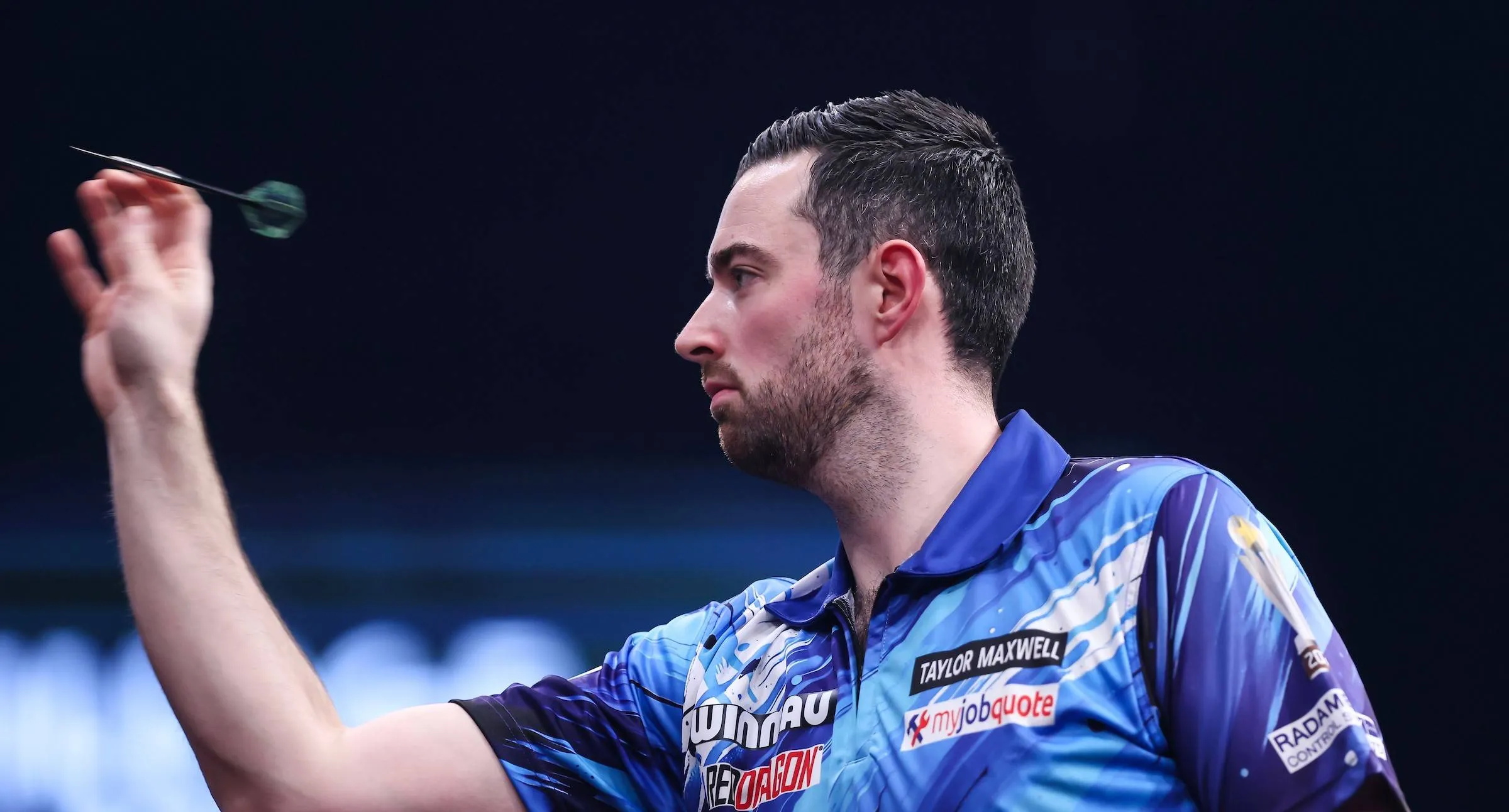ANALYSIS: Can England’s dream duo deliver at the 2025 World Cup of Darts?
PDCThursday, 12 June 2025 at 16:30
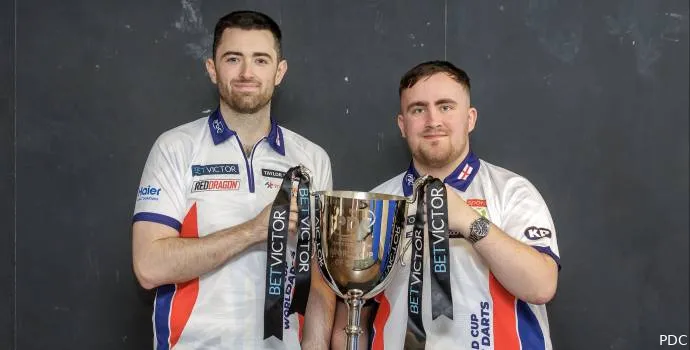
When the 2025 World Cup of Darts kicks off in Frankfurt from June 12–15, all eyes will be on Team England — and with good reason. The reigning champions return to defend their title, but with a significant change in personnel: Luke Littler, the teenage sensation and current world champion, joins Luke Humphries, replacing Michael Smith from last year’s victorious partnership.
With Humphries and Littler ranked world number one and two, England enters the tournament as the team to beat. On paper, it’s a dream pairing — arguably the most formidable duo ever assembled for the event. But while the talent is undeniable, so too are the potential pitfalls. This tournament demands more than individual brilliance; it’s about rhythm, chemistry, and performing under pressure as a team. And that’s where things get interesting.
Follow the 2025 World Cup of Darts via our live scores!
Follow the 2025 World Cup of Darts via our live scores!
Read also
Uncharted Territory: A First-Time Pairing
One of the most obvious challenges for England is that Humphries and Littler have never played as a team. Contrast that with nations like Scotland (Gary Anderson & Peter Wright) and Wales (Gerwyn Price & Jonny Clayton), who have years of experience competing together. That familiarity can be crucial in a format that requires seamless handovers and shared decision-making.
Unlike standard singles play, the World Cup demands players trust their partner every three darts. It’s a different rhythm — less about solo brilliance and more about team harmony. And as good as Humphries and Littler are individually, that synergy can’t be taken for granted.
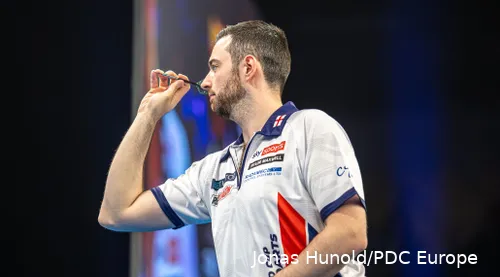
Clashing Styles, Complementary Strengths?
Another potential hurdle is their difference in playing styles. Humphries is calm, methodical, and composed under pressure. Littler plays fast, feeds off the crowd, and thrives in high-energy situations. That contrast could cause tension—or become a strength, if managed well.
For example, team strategy decisions — like how to approach a finish — will be crucial. Littler may prefer to be left on a “Big Fish” (170), while another player might opt for the safer route. Communication and trust will be essential, and the pair must quickly develop a mutual understanding.
Read also
The Weight of Expectation
England isn’t just competing - they’re expected to win. That brings pressure, particularly for Littler, who’s making his World Cup debut. The hype surrounding “The Nuke” is immense, and with many fans and pundits predicting a walk to the title, failure isn’t seen as an option.
But the World Cup isn’t a long-format grind; it’s short, sharp, and unforgiving. The knockout matches are played over a best-of-15 legs, meaning there’s little time to recover from a slow start. Both players must be ready to fire from the very first dart.
Skipping the Group Stage: Advantage or Risk?
As a top seed, England skips the group stage and goes straight into the last 16. While that avoids the risk of an early upset, it also denies the duo valuable match practice as a team. Meanwhile, nations like the Netherlands, Germany, and Belgium will already have played — and may be riding momentum.
In such a short format, that difference in match readiness could prove decisive. One shaky performance could open the door for a hungry underdog.
Read also
No Easy Matches This Year
In years past, England might have benefited from early-round mismatches. Not in 2025. The field is deeper than ever, with several nations boasting elite-level duos:
- Netherlands: Danny Noppert & Gian van Veen
- Belgium: Dimitri Van den Bergh & Kim Huybrechts
- Germany: Gabriel Clemens & Martin Schindler
- Scotland: Anderson & Wright
- Wales: Price & Clayton
All of these teams have the experience and quality to punish any dip in form. And then there’s Austria — finalists in both 2021 and 2024 — who’ve proven that cohesion and chemistry can overcome individual ranking.
The Littler Factor — and the German Crowd
One wild card in England’s title defence is the crowd — particularly how they respond to Luke Littler. The tournament takes place in Germany, where Littler has previously encountered hostile receptions. Boos, whistles, and attempts to disrupt his rhythm are not unheard of. Should England face Germany or another nation with a passionate home following, the atmosphere could become a factor.
While Littler has shown remarkable composure for his age, this will be a new kind of pressure—not just competing on behalf of his country, but doing so in an environment where he may be public enemy number one.
Read also
Conclusion: The Best on Paper, But Not a Foregone Conclusion
England has the two best players in the world. That gives them an edge few teams can match — but it’s not a guarantee of success. The World Cup is about partnerships, not rankings. If Humphries and Littler can find their rhythm quickly, they have every chance of lifting the trophy. But if they stumble early — or struggle to gel — the door will be wide open for the chasing pack.
One thing is certain: this year’s World Cup of Darts won’t be won on reputation. It will be won on the oche, leg by leg, by the team that plays best together.

Last year, Michael Smith and Luke Humphries gave their country the title in Frankfurt
claps 0visitors 0
Just in
Popular news
Latest comments
- So,it's a rubbish league,waste of time. Just put 8000 people in a building every Thursday,get them all drunk,and wonder why it's a complete joke. And forget every other player apart from 8. It's a ridiculous,inane,and needless so called competition.rick6718-02-2026
- Sorry,I've never been a professional darts player,but obviously from your comment,you have. So, going to your reply, you're blaming the management,not the player? So in that respect,he should get a different manager? That's basically all your comment is saying. Don't let him do money makers,which Barney said is easy money, instead of tournaments? Shake hands instead of trophies? Well I guess the manager knows best,as he has a big cut!rick6716-02-2026
- Sorry Mr rick67, erm what punditry credentials do you have to comment on a pundit? There's a reason why many top professionals have management teams. They know how to manage schedules etc so the players can just play. And how is Edgar wrong? Last year MVG failed to qualify by missing too many tournaments and underperforming. He's repeating the error this year so Edgar is right In calling this out.BandB15-02-2026
- Just get of Mardle,I didn't pay to watch him,and I don't want him for free! Let's see,how many world champions,either code,did you win? None! Now mason does it more as a player who was a floor player than you were putting pineapple on your shirt. Mardle,just go,you over inflated ego may follow. Tell you what,get on the seniors tour,and show everyone how good you weren'trick6715-02-2026
- Sorry Mr Edgar,erm what have you actually won to comment? Mvg has had his issues,but you have won a grand total of what? I make that nothing. So how can your comment be justified? Let him do what he likes,you do what you like, and we'll see what you win nextrick6715-02-2026
- Seems to be having a moan for no reason and using “Do-Gooder” as an insult makes no sense. It literally means someone who does good things!Wonker12-02-2026
- Mickey Vs mensur for the world champion? It's starting tomorrow,finishes in January!!rick6711-02-2026
- Oh well that's it then. Both these goofs will expect and demand premier league darts next year after this.richieburnettrocks10-02-2026
- Sincere apologies to Richie, I forgot yesterday, slightly belated but Happy Birthday to the great man. Certainly looking good for 59richieburnettrocks08-02-2026
- He's a nice bloke. He's sort of portrayed as a villain,but he isn't. He plays with heart. Sure he's had issues with the crowd,who are mostly in drink,and some players,but which player hasn't? Littler will have to get used to booing,the crowds always get fed up with consistency. However,Humphries won't have that problem,he's a top bloke too,humble.rick6708-02-2026
Loading

